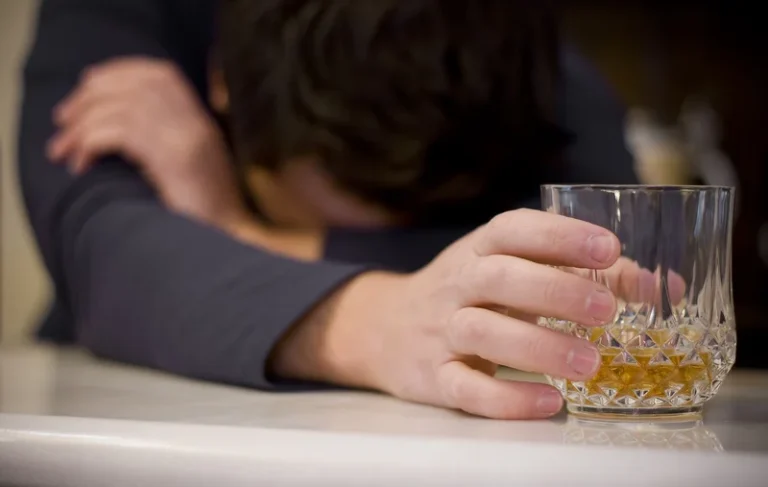
Five articles look at peer support strategies, but only two of these focus on peer support =https://ecosoberhouse.com/ as the principal intervention strategy; in the three other cases, peer support constitutes a secondary strategy. Kelly et al. 31 look in detail at Alcoholics Anonymous (AA) and the twelve-step program, designed to help participants recover from alcohol dependency, remain sober and improve their quality of life. AA meetings are held in community spaces, are run by members (with a current or past AUD) and last for between 60 and 90 min; professionals from outside the group may be called in at the participants’ request, in order to provide more specialist advice 31. Parkes et al. 52 also describe an intervention organized by and for homeless people with drug and/or alcohol use.
What Types of Alcohol Treatment Are Available?
Mutual support groups may be beneficial for providing a sense of community for those in recovery. Groups vary widely in beliefs and demographics, so advise patients who are interested in joining a group to try different options to find a good fit. Establishing a relationship of trust with users makes it possible to set objectives tailored to individual needs 73, taking into account alcohol users’ own point of view on their intake 60. The very fact of setting objectives is regarded as an inherently positive thing 33. Such objectives must be adapted to the level of consumption, the support requirements and the specificities of each user 64.
- These include Assertive Community Treatment (ACT), a model of care designed for patients whose primary dependency is upon alcohol 34.
- In fact, there are many treatment options available thanks to significant advances in medical and behavioral research over the past decades.
- In addition, some programs focus solely on treating substance use disorder, while others offer dual diagnosis rehab, which addresses both addiction and co-occurring mental health conditions.
Telehealth Options for Alcohol Treatment
Certain medications have been shown to effectively help people stop or reduce their drinking and avoid a return to drinking. Acceptance- and mindfulness-based interventions increase awareness and acceptance of present-moment experiences. Mindfulness-based skill-building strategies promote flexible, rather than autopilot, responses to triggers that can prompt drinking. Professionally led treatments include behavioral treatments and medications. Many others substantially reduce their drinking and report fewer alcohol-related problems. “Currently, several government departments appear to refer vulnerable people to Village of Hope while taking no responsibility for oversight to avoid exploitation,” Lamrock said, noting that attending Village of Hope includes unpaid labour and supervised living conditions.

Communities Talk to Prevent Alcohol and Other Drug Misuse
Today there are more options available for treating alcohol use disorder (AUD) than ever before. Decades of research have led to Alcoholism Treatment Program advances in medications and behavioral therapies to help people recover. Professionally led alcohol treatment now takes place in a variety of settings, including outpatient care that can help many people recover while still living at home.
E-Health Alcohol Treatment Tools*
Article types such as books, editorials, guidelines, commentaries, dissertations, discussions, policy analyses, and newspaper or magazine articles were excluded. Of the 488 records that underwent review to meet the authors’ inclusion/exclusion criteria noted earlier, 16 articles met the initial eligibility. Previous studies have shown positive outcomes from participating in peer support groups. Therefore, people who take these medications can also participate in mutual support groups that advise members not to replace one drug of addiction with another.
Finding an alcohol rehab program in the U.S.
The average cost of alcohol-related rehabilitation depends on many factors. For instance, your location, the type of program you choose, and any insurance coverage you have can all make a big difference in your final costs. For more information about treatment options, see NIAAA’s Treatment for Alcohol Problems booklet. People often think there are only two places to get help for alcohol problems—Alcoholics Anonymous (AA) or residential rehab. Learn ways to compare the quality of your options and make the best choice for your situation.
Once you leave a rehabilitation program, you may face challenges and temptations that can lead to relapse. Aftercare programs are designed to give individuals ongoing assistance and continued support to maintain long-term sobriety. However, regardless of your level of alcohol abuse, seeking the guidance of medical and mental health professionals can promote a Sobriety better understanding of this chronic disease and help inform the course of treatment that you ultimately select. Common mental health conditions that co-occur with AUD are depressive disorders, anxiety disorders, trauma- and stress-related disorders, other substance use disorders, and sleep disorders. Studies show that people who have AUD are more likely to suffer from major depression or anxiety over their lifetime.

When considering the many types of alcohol rehab and treatment programs, remember that everyone’s needs are different. In general, the longer and more intense your alcohol use, the longer and more intense the treatment you may need. General outpatient services are appropriate when you feel stable in your recovery, but additional treatment is useful in managing your substance use disorder and providing accountability. Intensive outpatient programs (IOP) are similar to PHP because they don’t involve live-in services. For example, many rely heavily on 12-step programming, such as those used in AA, that incorporates a set of guided principles to help with recovery.

Some interventions can be described as mixed, combining in-person and remote forms of support. Whether you’re looking for an inpatient or outpatient alcohol rehab center, finding the right treatment program is an important step on the road to recovery. During inpatient programs, support such as education and counseling is part of treatment. People attending inpatient rehab can also receive treatment for any mental health conditions that might be contributing to their alcohol misuse.
TIP 65: Counseling Approaches To Promote Recovery From Problematic Substance Use and Related Issues
- Self-guided programs such as these can be added to an overall treatment plan led by a health care professional.
- These results imply that peer and community support groups are important in the process of relapse reduction, in particular, groups that focus on self-determination, as it can have a positive impact on recovery from substance abuse and homelessness.
- When talking to providers, use this worksheet to stay on track as you ask recommended questions and capture the answers.
- They’ll help you explore options like therapy, support groups, or sober living environments.
With regard to the 3 articles which address peer support as a secondary strategy, these interventions are tailored to the socio-economic conditions of alcohol users, for example an intervention focusing on housing 62, 84 and a MAP based on peer-to-peer support 80. 3 of the selected interventions operate at a structural level; that is to say that these interventions do not involve individual or collective exchanges, in person or remotely, between alcohol users and healthcare professionals. Instead, they focus on providing access to housing for alcohol users 67 or coordinating, scheduling and adapting healthcare responses 68, 69.


